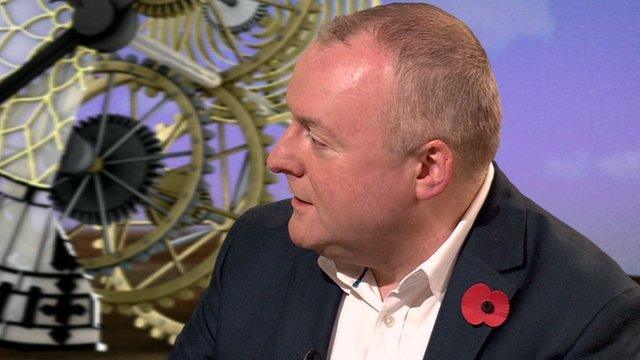Ed Miliband pledges to fight election 'street by street'
- Published
- comments
Douglas Alexander MP: "Divided parties lose elections...we have got a profound responsibility to the people...to pull together"
Labour leader Ed Miliband has pledged to fight and win the general election "street by street, house by house".
Following questions about his leadership, Mr Miliband wrote on Facebook , externalMay's election would be "a fight for the future of our country".
He also said he had changed his party's position on immigration.
It follows reports some backbenchers wanted him to resign and that his leadership was questioned at a meeting of Labour MPs from north-west England.
Recent polls have suggested Labour is on course to lose seats to the Scottish National Party, and that Mr Miliband is now less popular than his Liberal Democrat counterpart Nick Clegg.
But a number of high-profile party figures have taken to the airwaves to defend him.
'Controlled immigration'
In his Facebook article, Mr Miliband - who had previously dismissed the leadership claims as "nonsense" - said Labour would be "taking our case to the people on every issue".
"We are in the fight for the future of our country and in the general election Labour will show we are equal to the challenges of the time in which we live," he wrote, saying Britain was a "deeply anxious country riven by profound inequality".

Analysis
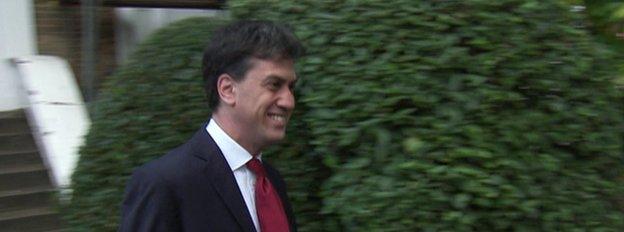
BBC political correspondent Chris Mason
While accurately measuring gloom is impossible, there is rather a lot of it about among Labour MPs - and more than there was.
It is six months to the day until the general election, and, as opinion polls suggest Labour's lead is narrowing and Ed Miliband is less popular than his party, some fret this could not just stunt Labour's progress at the election, but cost them their seats.
But Labour does take comfort from not being the sole home of political gloom. The atmosphere's sufficiently febrile, the polls sufficiently in flux, to mean the Conservatives and the Liberal Democrats are not immune from nervy bouts of worry either.

He added: "As we enter the last lap before the general election, Labour will show in towns and cities across Britain that we have a plan to answer the deep problems faced by so many families."
Listing some of the party's key policies, he also said Labour had "learnt from our past", pointing to immigration which he said "needs to be controlled and managed".
The BBC has learned that the leadership was discussed on Wednesday, at a regular social gathering of Labour MPs from the 2010 intake.
Sources say MPs from north-west England discussed moving to a defensive strategy in a bid to hold on to their seats, rather than an offensive one aimed at winning the election.

Labour leadership rules
In order to depose a sitting Labour leader a challenger would need to be backed by 20% of Labour MPs.
There are currently 257 Labour MPs, so any potential candidate needs the formal support of 52 of them.
If a nominee secures this level of support they must then write to Labour's general secretary Iain McNicol announcing their intention to run.
The contest would then be decided at annual conference in the autumn.
There is no mechanism to call an emergency conference before this.

Shadow chancellor Ed Balls said claims of unrest were "anonymous quotes" which were "got up", while general election co-ordinator Douglas Alexander said "divided parties lose elections".
Andy Burnham, the shadow health secretary, called on Labour to pull together and dismissed as "complete and pure fiction" a claim he was involved in talks about a new leadership.
The BBC's assistant political editor Norman Smith said there was a "wide degree of disillusionment" about Mr Miliband's leadership.
"But there is no way anyone can see of doing anything about it," he added.
"If they could have a magic wand and just wave Ed Miliband away I'm sure they would love it. But they don't."
Diane Abbott: "You don't take on your brother for the leadership of the party and step down when you're poised to win"
Labour backbencher John Mann, a critic of the leadership in the past, said Mr Miliband needed a "cutting edge" if the party was to win back power.
Asked if Mr Miliband could turn things around, he said yes but added: "He needs to be doing the right thing. We do not need more policies... We need him out and about, literally on the doorstep, listening to people and reflecting on what they are saying."
- Published7 November 2014
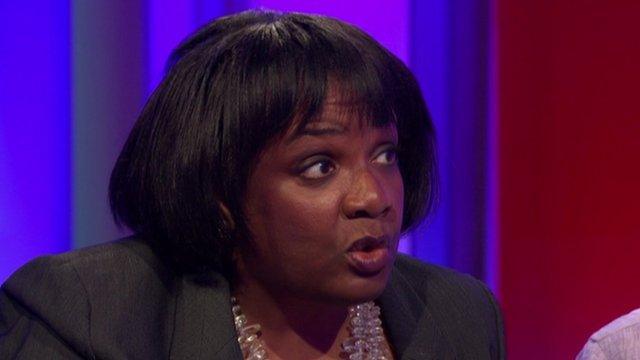
- Published6 November 2014
- Published5 November 2014
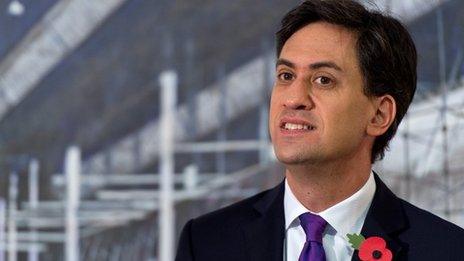
- Published2 November 2014
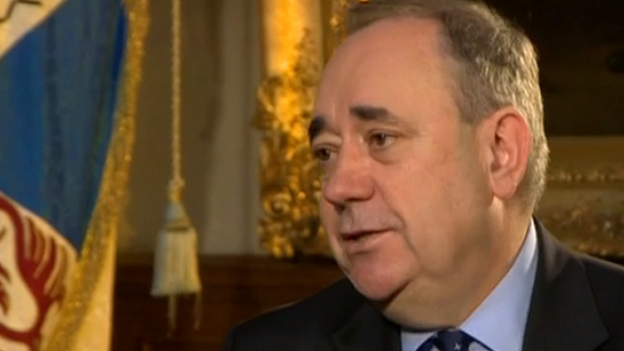
- Published2 November 2014
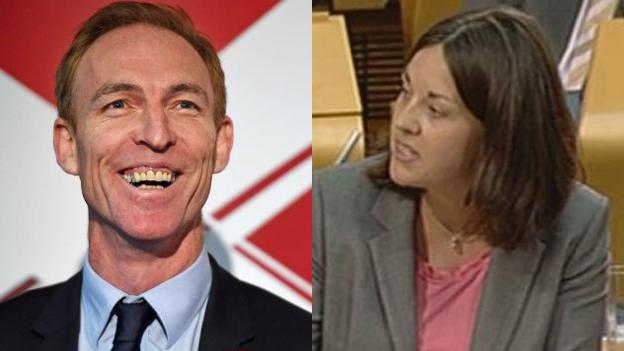
- Published6 November 2014
